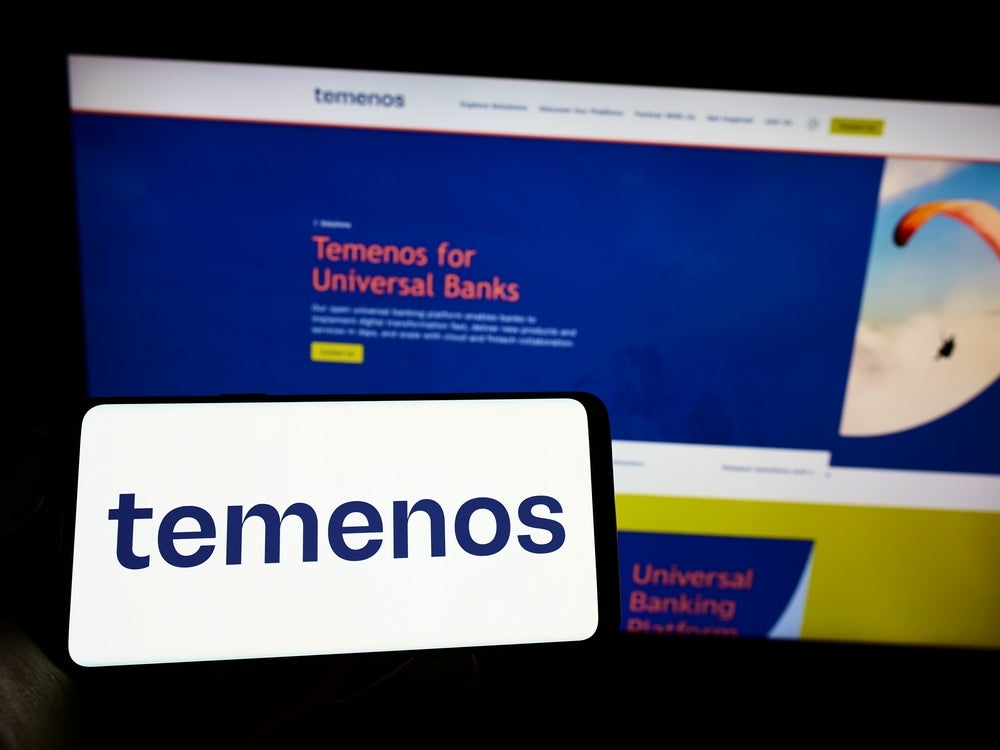ONLINE PAYMENTS
Black Friday bonanza for online
retailers
The day after the US’ Thanksgiving
Day holiday has come to be called Black Friday, not because of any
regular quirk of nature but, rather, the congestion that
accompanies the beginning of the traditional Christmas shopping
season.
However, increasingly consumers are
shunning the human scramble and turning instead to the convenience
of online shopping.
This year’s Black Friday saw more consumers
than ever opting to shop online with payment card issuer, payment
processor and anti-fraud specialist Retail Decisions (ReD)
reporting that US online retail sales hit $3 billion on the day, up
an incredible 52 percent compared with Black Friday 2008.
According to ReD, the busiest minute for
online retail sales saw a 131 percent like-for-like increase on
2008, while between the hours of 12:00 and 13:00 retail sales
peaked at $183 million – an increase of 61 percent.
How well do you really know your competitors?
Access the most comprehensive Company Profiles on the market, powered by GlobalData. Save hours of research. Gain competitive edge.

Thank you!
Your download email will arrive shortly
Not ready to buy yet? Download a free sample
We are confident about the unique quality of our Company Profiles. However, we want you to make the most beneficial decision for your business, so we offer a free sample that you can download by submitting the below form
By GlobalDataOn the downside, ReD recorded a significant
increase in online fraud on Black Friday.
On this aspect Carl Clump, ReD’s CEO,
commented: “While online retailers witnessed a huge upturn in sales
this Black Friday, fraudsters are also ‘spending’ more, with an
average value of $248 per transaction online, 23 percent more than
the average genuine customer.”
SECURITY
Merchant e-Solutions’
token-based security
Merchant e-Solutions (MeS), an
internet-based payments processor focused on US community banks,
has begun providing merchants with token-based security solution to
protect credit card data. With the free service, MeS follows a lead
set by processing giant First Data which recently launched a
token-based data transmission solution, First Data Secure
Transaction Management.
“Using tokenisation, the actual card number is
only transmitted in the initial payment request, then with the
approval or decline of the transaction MeS returns a token instead
of the actual card number,” explained Jim Aviles, MeS’ COO. “We’re
providing merchants with a secure process to help eliminate the
risk and expense of storing credit card numbers on their business
systems, thus lowering their operational costs.”
With MeS’ solution, card numbers are replaced
with a unique identification, or token, and must be combined with a
merchant profile identification and key, making it unusable if
intercepted during transaction processing. Tokens are stored on
MeS’ servers, which comply with the Payment Card Industry Data
Security Standard.
Founded in 1999, MeS processes some $14
billion in payments annually for 65,000 merchants. MeS’ platform
supports 150 currencies and all major credit, debit and alternate
payment methods.
COMPANIES
Heartland victorious in class
action battle
Heartland Payment Systems, the
fifth-largest payments processor in the US, has successfully
defended against a shareholder class action brought against it, its
chairman and CEO Robert Carr, and its president and CFO Robert
Baldwin.
The class action was brought against Heartland
following its announcement on 20 January 2009 that it had been the
subject of a massive breach of its data security systems.
Participants in the class action alleged that
Heartland had failed to provide adequate protection of its
customers’ data and had unnecessarily delayed making an
announcement of the data breach.
Following the announcement of the breach,
Heartland’s share price collapsed from $15 to $5 per share.
The class action against Heartland was
dismissed in its entirety with prejudice.
MOBILE PAYMENTS
Billing Revolution builds
impressive partner base
Adding another major partner to its
lineup, US mobile payments specialist Billing Revolution has been
selected by POS vendor Retail Data Systems (RDS) to enable its
merchant customers to accept credit card payments initiated on
internet-enabled mobile phones.
Laying claim to being the US’ largest supplier
of POS hardware and software, RDS serves some 13,000 merchants –
primarily in the restaurant, grocery and retail sectors where it
has been active for 60 years.
“Through our partnership with Billing
Revolution, merchants can easily enable remote ordering and
payments from any web-enabled mobile phone,” commented Richard
Roscher, head of RDS’ payments division. “This allows them to
easily make the move to mobile without having to make costly
updates to their existing infrastructure.”
The addition of RDS came hard on the heels of
Billing Revolution’s announcement in November of its appointed by
PayPal as a mobile commerce partner. Other significant new Billing
Revolution partners include payments processor Elavon, a unit of
the US’ sixth-largest commercial bank US Bancorp.
Billing Revolution’s major backer is SK
Telecom Ventures, the US-based private equity arm of Korean
telecommunications giant SK Group.
REMITTANCES
Mexican remittance continues to
fall
Inward remittances into, the world’s
third-largest remittance recipient, Mexico continued their downward
spiral in October, falling 36 percent compared with October 2008 to
$1.69 billion.
The data quoted by the International
Association of Money Transfer Networks (IAMTN) was derived from
Mexico’s central bank, The Bank of Mexico.
Compared with inbound remittances in September
2009, inbound remittances were down $1.74 billion. In the first 10
months of 2009, they were down by 16 percent compared with the same
period in 2008 to $26.07 billion.
The IAMTN noted that remittances of $25.14
billion in 2008 were 3.6 percent lower than in the all-time high of
$25.14 billion in 2007.
Mexico accounted for just over 36 percent of
total inbound remittances into Latin America in 2008.
Despite the dismal showing of remittances in
October, the IAMTN’s MD Leon Isaacs noted that
they should be seen in the correct context.
“This looks like a very depressing number,” he
said, “but as [economist] Sanket Mohapatra from the World Bank
points out, October 2008 was a time of massive growth in volume
remitted to Mexico because of the strength of the dollar. A year on
it may be dangerous to take a like-for-like comparison at face
value.”
PAYMENTS PROCESSING
VocaLink teams up with BBP for
SWIFT services
VocaLink’s ambitious growth strategy
has taken another step forward with the formation of a partnership
with BBP, operator of Switzerland’s largest SWIFT service bureau.
Under the agreement with BBP the UK payments service provider is
positioned to offer banks and their corporate customers a
comprehensive hosted connectivity service to SWIFTNet for routing
payments.
Commenting, Fred Bär, MD for euro services and
channels at VocaLink, said: “By offering SWIFT capabilities and
standards with BBP, VocaLink’s customers will benefit from a single
route to SWIFT.
“This greatly reduces the operational overhead
of managing SWIFT internally by outsourcing to certified
specialists, enabling banks to focus on their core business. As a
result, we are able to fulfil the highest requirements in terms of
stability, availability and security at the same time.”
VocaLink also emphasised that banks’ corporate
customers will benefit by gaining easier access to their chosen
payment service provider and banks through a single access point
for all of their payments, regardless of format.
BBP’s SWIFT Service Bureau already operates
outsourced SWIFT services for over 200 customers in about 30
countries worldwide.
COMPANIES
Clear2Pay gets a €50m capital
boost
Providing its financial resources
with a significant boost, Belgian payment processing technology
vendor Clear2Pay has secured €50 million ($74 million) in a capital
raising exercise led by Aquiline Capital Partners. A US private
equity firm, Aquiline Capital Partners focuses on investments in
financial services companies and financial services technology
vendors.
Commenting on the rationale for its investment
in Clear2Pay, Aquiline’s CEO Jeff Greenberg said: “Clear2Pay is a
profitable business and has the best growth potential in the
industry due to its experienced management team, next-generation
technology, strong customer relationships and proven ability to
integrate strategic acquisitions.”
Clear2Pay secured a number of significant new
business wins in 2009. These included a contract to supply
Commonwealth Bank of Australia, Australia’s largest bank, with its
Open Payment Framework (OPF) solution. The OPF solution was also
selected by Spanish bank Santander for its group bank payments
processing and other underlying solutions including Single Euro
Payments Area direct debits and credits.
INTERNET BANKING
Raiffeisen takes direct banking
route in CEE
An encouraging sign that banks are
regaining the will to invest in new projects has come from an
announcement by Raiffeisen International that it is to establish a
new direct internet-based retail bank in Central and Eastern Europe
(CEE). Raiffeisen International, which already has extensive
banking operations in CEE, is 70 percent-owned by Austrian bank
Raiffeisen Zentralbank Österreich.
“Our new direct bank will address the unique
needs and interests of Internet-focused customers, who represent a
fast-growing group in Central and Eastern Europe,” said Herbert
Stepic, Raiffeisen International’s CEO.
Scheduled to be launched in 2010, Raiffeisen
International’s direct bank is licensed by the Austrian Financial
Market Authority.
The Single European Passport principle allows
the new direct bank to enter the banking market in another European
Union member state simply by following a notification process with
the competent regulatory authorities.
Raiffeisen International, which first entered
CEE in 1986, has managed subsidiary banks, leasing companies and a
number of other financial service providers in 17 markets in the
region. At the end of September 2009, it had 59,000 employees in
the region and served about 15 million customers via some 3,100
business outlets.
MOBILE PAYMENTS
Luup forges ahead
Continuing its rapid expansion,
Norwegian mobile payments technology developer Luup International
has launched its Mobile Salary Disbursement solution in the Middle
East and Africa region in a bid to serve the needs of corporate
businesses disbursing salaries to their unbanked employees.
Businesses opting for Luup’s solution can
provide unbanked employees with a stored value account into which
salaries can be paid electronically and accessed through their
mobile phone.
The employees can access their salary through
ATMs or agents as well as make cross-border remittances.
“By removing the operational costs of cash
handling as well as the security risks traditionally associated
with paying employees in cash, corporates can reap double benefits
from the Luup solution,” commented Luup’s CEO Thomas Bostrøm
Jørgensen.
Luup’s service should prove particularly
welcome in the United Arab Emirates, where a recent regulation, the
Wage Protection System, requires payment of salaries by all
companies to be made through electronic bank transfers.
Luup can look back on a highly successful 2009
which saw a number of important milestones reached.
Arguably the most significant was Luup’s
selection by Deutsche Bank, Germany’s largest bank, to provide the
platform for a mobile phone-based payments and money transfer
service to serve its private and corporate customers in 80
European, Middle Eastern and Asian countries.
BANKING SYSTEMS
Infosys powers Société Générale
in China
As a key element in its ambitious
growth strategy in China, French bank Société Générale’s Chinese
unit has completed implementation of Finacle, a core banking,
customer relationship management, wealth management and consumer
electronic banking platform supplied by Indian technology systems
and services vendor Infosys Technologies.
The Finacle solution implemented by Société
Générale China integrates all the bank’s communication channels –
encompassing branches, the internet, ATMs and mobile.
Commenting on the implementation of the
Finacle solution Jackson Cheung, Société Générale China’s CEO said:
“The right technology backbone, with the scalability and
flexibility to match our growth pace, is important for us at this
juncture to achieve competitive edge in the Chinese retail and
corporate banking market.”
For Infosys, the Société Générale China
Finacle purchase represents its seventh in a major foreign bank in
China.
ONLINE PAYMENTS
Chinese gamblers flock to the
internet
Many Chinese internet users are also
inveterate gamblers, suggests data from Chinese internet service
provider Tencent, published by the country’s official news agency
Xinhua.
According to Xinhua, Tencent’s CEO told
delegates to the Seventh China International Digital Content Expo
held in late November that China’s online gaming industry should
reach CNY27.5 billion ($4 billion) in 2009, an increase of 49.6
percent compared with 2008.
In 2008 growth of almost 77 percent from
2007’s CNY10.4 billion to CNY18.4 billion was recorded.
While the lure of online gaming is clearly
hard to resist for Chinese gamblers, it is also highly attractive
for online gaming companies. Quoting newspaper the Beijing Daily,
Xinhua noted that major Chinese online gaming companies including
Sohu, Tencent, NetEase and Shanda, reported profit increases of 60
percent or more in the third quarter of 2009.
Chinese online game companies’ expansion
overseas also contributed to their success, noted Xinhua.







